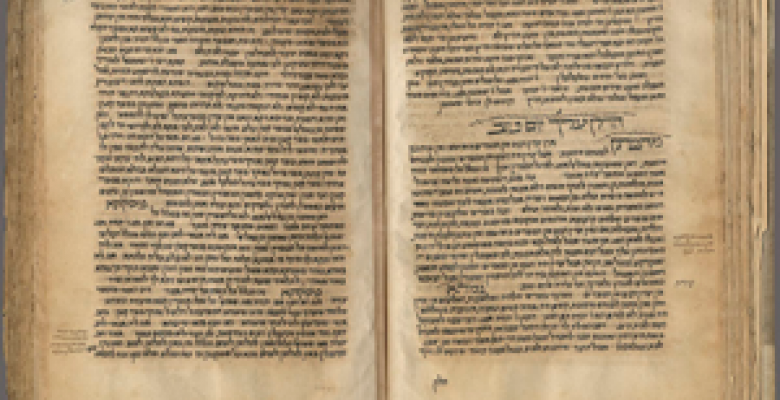Dual-Degree Program With JTS Combines Secular and Religious
Special from The Record
After four years at Columbia, Samuel Alexander will have a bachelor’s degree in English and Comparative Literature. And another one in Midrash, or rabbinic storytelling, from Jewish Theological Seminary.

Even though he has a heavy course load—about a third more classes than the typical undergraduate—the end result is an ideal fit for the 20-year-old junior, who took Jewish studies classes at a local college when he was in high school in Ambler, Pa., outside Philadelphia.
“My high school experience was full to the brim with activities, and I really wanted to be engaged,” said Alexander. “I felt that it would give me an opportunity to express that at the collegiate level. It was a much more involved way to study in an interdisciplinary way and in a very ambitious way.”
The Joint Program, which has been in place since 1954, allows students who want to pursue Jewish studies the opportunity to do so at an Ivy League university. They combine intense study at Columbia’s School of General Studies with a second bachelor of arts degree at JTS, the East Coast rabbinical seminary for Judaism’s Conservative movement, located a few blocks north of the Morningside campus on Broadway. The seminary, which like Barnard College, Teachers College and Union Theological Seminary is affiliated with Columbia, is also home to numerous graduate programs in advanced Judaic studies.
Students who enroll in the undergraduate partnership “have the JTS community, the Columbia experiences, but it truly is combined,” said Curtis Rodgers, dean of enrollment management at General Studies. “They are part of both worlds and both communities.”
Joel Newman (GS’76, JTS’76) was a transfer student from Southern Methodist University when he enrolled in the program. Now a rabbi and military chaplain, Cmdr. Newman has sounded the shofar—the ritual ram’s horn, blown in the month leading up to Rosh Hashana—in Kuwait, Djibouti, Iraq and Afghanistan and has led Passover celebrations in the desert and on aircraft carriers.
“I was looking for something a little different, and I got it,” he said. “None of this would have happened if I hadn’t gone to Joint Program. I wouldn’t have had the same drive.”
At JTS, Newman studied the Bible, the Talmud and Hebrew literature and at Columbia, he took a class on hieroglyphics. He felt inspired by the “almost magical” experience of celebrating Shabbat at JTS with the great American Jewish scholars of the time, including Abraham Joshua Heschel and Louis Finkelstein, and studying the Middle East at Columbia with the distinguished Israeli statesman and visiting professor Abba Eban. After graduating, he went to rabbinical school in London at Leo Baeck College.
Even after all these years, he still remembers how “the program was unbelievably taxing in terms of your time.”
That hasn’t scared off more recent students. “You’re always juggling many things at once, in your work life and otherwise,” said 21-year-old Sam Kerbel, a 2011 graduate of the program, who points out that it requires flexibility and mental rigor. “The biggest value of the Joint Program, when you’re learning at two institutions and earning two degrees, is that it really helps prepare you for the real world.”
Over the years, as the program has increased in popularity, JTS began similar arrangements with other schools within Columbia. The Double Degree Program, with Barnard College, began in 1980; it has 60 students this year. And three students are pursuing a joint master’s of social work at the School of Social Work and JTS this fall.
Danielle Reich, a sophomore in the program, is planning to major in Jewish history at JTS and in Middle Eastern, South Asian and African Studies at Columbia.
“The joint program emphasizes two types of college life: having a huge university with Jewish and secular information at your disposal, and JTS, where you have a smaller environment, a security blanket almost. I enjoy that dichotomy,” she said.
With school well underway, students in the program are immersed in their studies, taking roughly six classes a semester instead of the usual four or five. In addition to his double degrees, Alexander is also earning a teaching certificate in secondary education at Barnard, and he’s a resident adviser in JTS’s undergraduate dorm, where all 140 students in the program live. After graduation he plans to work as a high school English teacher.
“Students are interested in having intensive Jewish studies in addition to a first-rate education” at Columbia, said Shuly Rubin Schwartz, dean of graduate and undergraduate studies at JTS. “By coming here, they don’t have to sacrifice one for the other.”